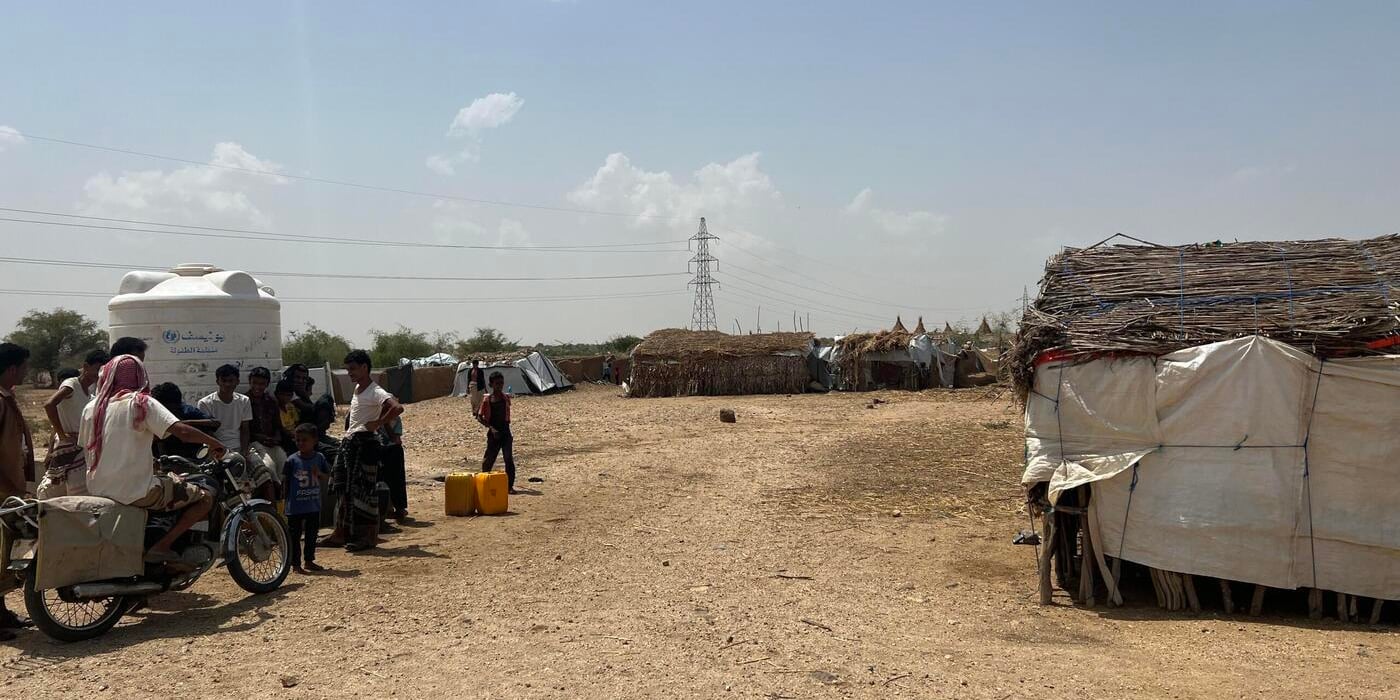
The crisis in Yemen is described as the world's largest humanitarian crisis. After four years of catastrophic conflict, millions of Yemenis are just one step away from famine. Without life-saving aid in the coming months, thousands of lives are at risk due to ongoing violence and lack of access to food and medicine.

"To avoid more deaths and suffering we must continue to scale up humanitarian assistance, donors should give more money, the use of blockade and restrictions on food fuel and medicines must be lifted, and we must see an end to the war," says Egeland.
On the brink of famine
More than 20 million people across the country are hungry. Half of these people are suffering from extreme levels of hunger or are a just one step away from famine. This is a 14 per cent increase from last year. Two-thirds of all districts in the country are already pre-famine.
Close to 240,000 people are already living in famine like conditions in some locations. Hunger is most severe in the areas where there is fighting.

More than 8 out of 10 need humanitarian aid
"Millions of Yemenis are hungrier, sicker and more vulnerable than a year ago, pushing an ever-greater number of people in to seeking humanitarian assistance to survive", says Egeland.
Of the country’s 29 million inhabitants, 24 million people need some form of humanitarian or protection assistance, including 14.3 million who are in acute need. Severity of needs is deepening, with the number of people in acute need a staggering 27 per cent higher than last year.
Humanitarian aid is increasingly becoming the only lifeline for millions of Yemenis.
Millions of Yemenis are hungrier, sicker and more vulnerable than a year ago, pushing an ever-greater number of people in to seeking humanitarian assistance to survive.Jan Egeland
Egeland says, it is no coincidence that the top donors for Yemen's humanitarian aid over the last year were the United States, Saudi Arabia and the United Arab Emirates, funding 60 per cent of the total response plan, with the UK further down funding five per cent of the response.
"They have, with other nations on both sides, contributed to the war which has produced the shocking 24 million Yemenis in need of aid. That is more than three fourths of the entire Yemeni population. We also need more money from governments who are not involved in this brutal war."
Attacks on civilians and civilian infrastructure
Every day Yemeni civilians continue to be killed and injured in their homes, cars, farms, markets or in cars and buses. Houses, schools, hospitals and water tanks continue to be destroyed and damaged by all sides in this conflict. With air strikes inflicting the most damage.

The Yemen Data Project has reported that while the overall number of air attacks decreased during 2018, the proportion of those attacks striking civilian targets rose, while attacks on military targets fell. They report that of the 3,362 air raids in Yemen in 2018, 420 of these air raids hit residential areas.
On average, it is estimated that 600 civilian structures, are damaged or destroyed every month.
"We need to see an end to the hypocrisy of nations trading in arms or raining down shells and bombs on Yemeni civilians caught in crossfire. Yemenis need much more than just money. They need an end to interference by political and military authorities in aid delivery."
The deadly blockade must come to an end
Before the escalation of the war in Yemen, the country imported 90 per cent of its staple food and nearly all its fuel and medicine. After the war escalated in March 2015, border crossings, airports and harbors have been closed intermittently.
In November 2018, the Saudi and UAE led Coalition completely shut down Hodeidah port for one month further exacerbating the humanitarian crisis. Today, the Coalition continues to impose restrictions on commercial goods, fuel, food and medicine coming in to the country. These restrictions have contributed to pushing up the price of essential goods and have created a shortage in medicines and fuel coming in to the country. Sana’a airport remains closed to domestic and international flights preventing Yemenis from getting treatment for life threatening medical conditions abroad.
A combination of negative factors
Staple food items are now on average 150 per cent higher than before the crisis escalated. A combination of factors such the use of blockade, restrictions on commercial goods, the collapse of the economy and public services, coupled with disruptions to livelihoods and economic activities, with 600,000 jobs lost and with teachers, health workers and civil servants in the northern parts of the country not being paid for years is deepening the needs in Yemen and pushing millions of Yemenis to the brink of famine.
"Yemenis also need to see an end to blockade, all ports and airports reopened, public services restored, and a nation-wide ceasefire so that talks can bring an end to the conflict. This is the only way to break the vicious cycle of human suffering", says Egeland, “The success or failure of the UN negotiated ceasefire and peace talks will be critical for the future of Yemen as the crisis enters its fifth year.


